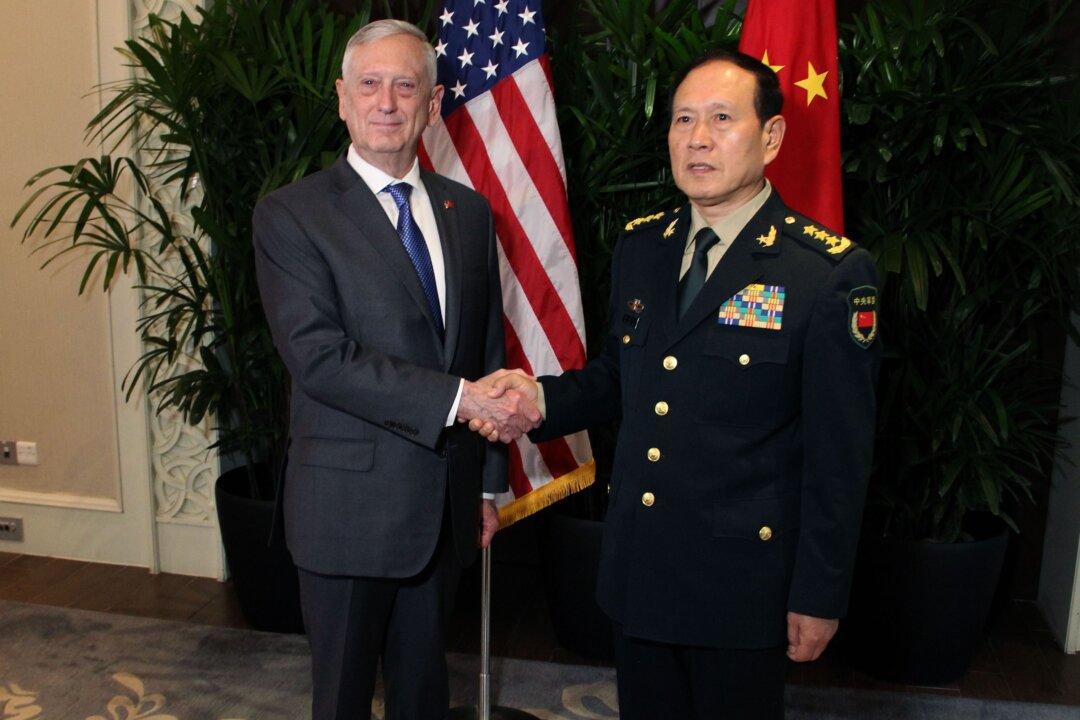SINGAPORE—U.S. Defense Secretary Jim Mattis told his Chinese counterpart that the world’s two largest economies need to deepen high-level ties, so as to navigate tensions and rein in the risk of inadvertent conflict.
Mattis saw firsthand last month how mounting Sino–U.S. friction can undermine military contacts, when Beijing upended plans for him to travel to China this month to meet with Defense Minister Wei Fenghe.





